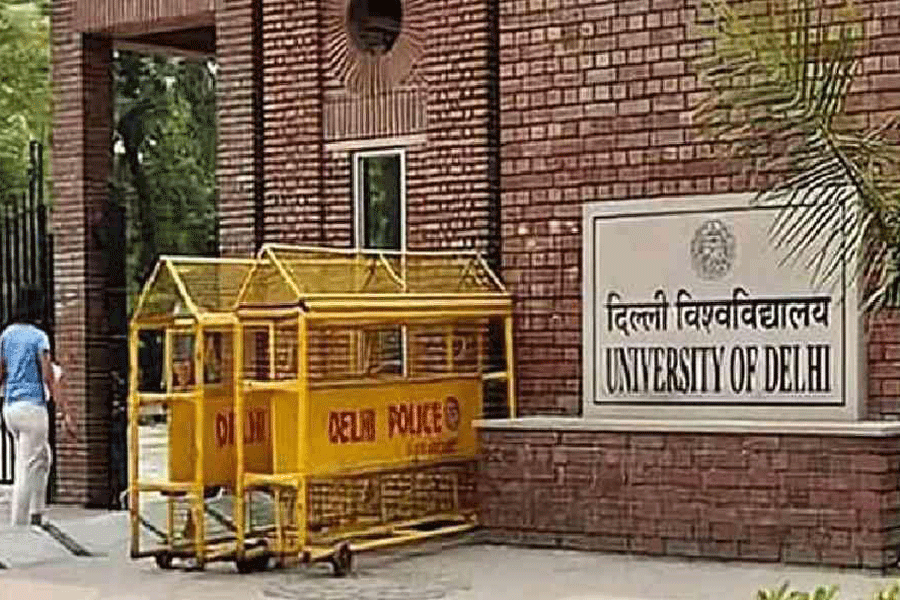Delhi University offers fee relief for new integrated five-year law course


Delhi University has announced graded concessions for poor students in fees for its new integrated five-year law course that is to begin in 2023, against the backdrop of criticism over burdening students with steep fees for courses to be conducted in the self-financing mode.
The Executive Council (EC) of DU on Friday approved a proposal to allow a 90 per cent fee waiver to students with annual family income less than Rs 4 lakh. Students whose parental income is between Rs 4 lakh and Rs 8 lakh will get a 50 per cent fee waiver.
The university has announced that all students will be reimbursed up to Rs 50,000 for laptops.
The university is offering the integrated law course from 2023-24 for a tuition fee of Rs 1.9 lakh a year. The teachers’ organisations had criticised the high fees.
The fee-hike decision had also been opposed by some members of the Academic Council (AC) and the DU Court. However, they are against graded concession, too, as the Union government does not distinguish among the Economically Weaker Sections (EWS) based on any income slab.
“The government’s policy on EWS reservation benefits those candidates whose family income is less than Rs 8 lakh a year. The university’s decision to categorise the poor is arbitrary,” said Aman Kumar, a member of the DU Court.
AC member Megh Raj said the policy of starting courses in the self-financing mode was not serving the objectives of a public university.
“A student will pay about Rs 10 lakh as tuition fee alone for the course. He or she will also spend on examination charges, mess, stay, books, transport and other things. This is not a small amount for those students whose family income is a little more than Rs 8 lakh a year,” he said.
The university has announced that elections for the DU Students' Union (DUSU) will be held on September 22. Aman Kumar and Megh Raj demanded that the elections be deferred since the date coincides with the second-semester exams of LLB students.
The EC on Friday gave a one-time age relaxation of three years to students for contesting and voting in DUSU elections. This year, the maximum age limit has been increased from 22 years to 25 years for undergraduate students and from 25 years to 28 years for postgraduate students.
The EC also approved a proposal that the university offer a value-addition course on Vedic mathematics.